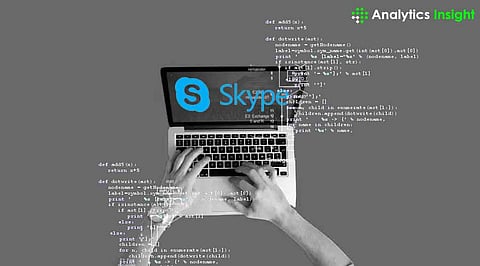

Skype has been a household name for video calls and messaging for years, but by 2025, it’s clear the world has moved on. Microsoft is even shutting it down in May, pushing users toward Teams. If that doesn’t sound appealing, or if you just want something fresher, there’s no shortage of options. From tools built for privacy to platforms perfect for work or play, here are the best Skype alternatives to explore this year.
Originally a hangout for gamers, Discord has grown into something much bigger by 2025. It’s free, packed with features, and great for anyone who loves group chats. Gamers can set up servers, think of them as private clubs, where people talk via voice, video, or text. The voice channels are smooth, with no lag even during busy sessions, and it is also possible to screen-share to show off a project or game.
What makes Discord stand out is how easy it is to manage. Users can assign roles, like “moderator” or “member,” to keep things organized. Video calls work best with smaller groups, though; don’t expect Skype-level conferencing for hundreds. Still, for friends, hobbyists, or small teams, it’s a lively, flexible pick that’s hard to beat.
If you’re already hooked into Google’s world, Gmail, Calendar, and Drive, then Google Meet might feel like home. By 2025, it’s polished up its act, offering crisp video and clear audio with almost no hiccups. Users can host meetings for up to 250 people, record them for later, and even add virtual backgrounds to keep your messy room out of sight.
The real perk? It’s tied into your Google account, so scheduling a call is as easy as clicking a button in Calendar. The free version caps meetings at an hour, but paid plans stretch that to 300 hours, which is plenty for most. For businesses or anyone who values hassle-free setup, Meet’s a strong contender.
Zoom exploded in popularity a few years back, and in 2025, it’s still a heavyweight. It’s reliable, whether you’re chatting one-on-one or hosting a webinar for 100. The free tier gives you 40 minutes per meeting, enough for quick catch-ups, while paid options unlock longer sessions and extras like cloud recording.
The interface is dead simple: send a link, and people join, no fuss. Zoom’s mobile app is slick, too, letting you hop on calls from anywhere. Security’s tightened up since its early days, though you’ll still want to lock down meetings to avoid uninvited guests. For work or big groups, it’s a solid Skype replacement.
Not everyone trusts big tech with their conversations, and that’s where Signal shines. In 2025, it’s the go-to for anyone who puts privacy above all else. Every call, voice or video, and message is end-to-end encrypted, meaning no one, not even Signal, can peek in.
The catch? It’s basic. Users won’t find fancy backgrounds or huge group features here, just secure, straightforward communication. It’s perfect for personal calls with friends or family who care about staying off the grid. Plus, it’s free and open-source, so there’s no funny business behind the scenes.
Since Skype’s on its way out, Microsoft’s nudging everyone toward Teams. By 2025, it’s a powerhouse for workplaces, blending chat, calls, and file sharing into one app. It hooks right into Microsoft 365, so users can edit a Word doc with the team mid-meeting. Video calls handle up to 1,000 people, and there’s a free version for casual use.
Teams isn’t as light as Skype was; it’s built for collaboration, not just quick chats. The interface can feel cluttered if people are not used to it, but for companies or groups already in Microsoft's ecosystem, it’s a natural fit. Bonus: your old Skype login might still work.
So, which one comes out on top? Discord is a blast for casual crews or small teams who like a bit of chaos. Google Meet keeps things clean and professional with Google’s backing. Zoom is the king of flexibility, handling everything from family reunions to board meetings. Signal is the best shield if privacy is non-negotiable. And Teams steps up for serious business needs.
In 2025, Skype’s exit opens the door to tools that do more, feel fresher, and fit today’s world better. Test a couple—most have free tiers—and see what clicks. The right alternatives out there, waiting to keep you connected.
